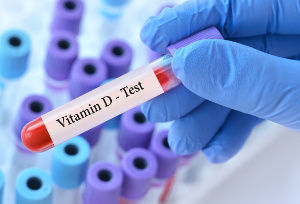afterLoad (456.16KB) (6.24ms)
afterInitialise (1.27MB) (48.61ms)
afterRoute (870.36KB) (22.96ms)
beforeRenderComponent com_tags (20.72KB) (256μs)
afterRenderComponent com_tags (1.25MB) (105ms)
afterDispatch (27.31KB) (6.71ms)
beforeRenderRawModule mod_articles_category (READ MORE...) (388.12KB) (32.07ms)
Before Access::preloadComponents (all components) (56.7KB) (2.68ms)
After Access::preloadComponents (all components) (107.42KB) (10.97ms)
Before Access::getAssetRules (id:8 name:com_content) (840B) (19μs)
After Access::getAssetRules (id:8 name:com_content) (7.05KB) (42μs)
afterRenderRawModule mod_articles_category (READ MORE...) (5.7KB) (320ms)
beforeRenderRawModule mod_tags_popular (Search) (4.81KB) (25μs)
afterRenderRawModule mod_tags_popular (Search) (1.51KB) (173ms)
beforeRenderRawModule mod_custom (Remember to download Heart Healthy Seniors) (816B) (26μs)
afterRenderRawModule mod_custom (Remember to download Heart Healthy Seniors) (4.86KB) (217μs)
beforeRenderRawModule mod_custom (Get additionel and more detailed knowledge ) (752B) (13μs)
afterRenderRawModule mod_custom (Get additionel and more detailed knowledge ) (1.67KB) (26μs)
beforeRenderRawModule mod_custom (BOOST YOUR IMMUNE DEFENSE) (608B) (10μs)
afterRenderRawModule mod_custom (BOOST YOUR IMMUNE DEFENSE) (928B) (22μs)
beforeRenderRawModule mod_custom (Are you taking supplements) (736B) (9μs)
afterRenderRawModule mod_custom (Are you taking supplements) (1.03KB) (19μs)
beforeRenderRawModule mod_custom (Antiaging) (720B) (9μs)
afterRenderRawModule mod_custom (Antiaging) (1.02KB) (19μs)
beforeRenderRawModule mod_custom (Exercise) (720B) (9μs)
afterRenderRawModule mod_custom (Exercise) (1.02KB) (18μs)
beforeRenderRawModule mod_custom (Check this before you buy a Q10 product) (752B) (9μs)
afterRenderRawModule mod_custom (Check this before you buy a Q10 product) (944B) (18μs)
beforeRenderRawModule mod_custom (Chronic fatigue tied Alan to his bed but Q10 capsules saved him:) (245.53KB) (8.62ms)
afterRenderRawModule mod_custom (Chronic fatigue tied Alan to his bed but Q10 capsules saved him:) (960B) (48μs)
beforeRenderModule mod_custom (Chronic fatigue tied Alan to his bed but Q10 capsules saved him:) (768B) (5μs)
afterRenderModule mod_custom (Chronic fatigue tied Alan to his bed but Q10 capsules saved him:) (1.3KB) (84μs)
beforeRenderRawModule mod_custom (Cholesterol-lowering without side effects:) (368B) (14μs)
afterRenderRawModule mod_custom (Cholesterol-lowering without side effects:) (2.19KB) (26μs)
beforeRenderModule mod_custom (Cholesterol-lowering without side effects:) (752B) (3μs)
afterRenderModule mod_custom (Cholesterol-lowering without side effects:) (1.28KB) (32μs)
beforeRenderModule mod_articles_category (READ MORE...) (21.32KB) (375μs)
afterRenderModule mod_articles_category (READ MORE...) (1.25KB) (48μs)
beforeRenderModule mod_tags_popular (Search) (5.17KB) (14μs)
afterRenderModule mod_tags_popular (Search) (1.27KB) (26μs)
beforeRenderModule mod_custom (Remember to download Heart Healthy Seniors) (1.17KB) (11μs)
afterRenderModule mod_custom (Remember to download Heart Healthy Seniors) (1.3KB) (23μs)
beforeRenderModule mod_custom (Get additionel and more detailed knowledge ) (368B) (9μs)
afterRenderModule mod_custom (Get additionel and more detailed knowledge ) (1.3KB) (21μs)
beforeRenderModule mod_custom (BOOST YOUR IMMUNE DEFENSE) (224B) (9μs)
afterRenderModule mod_custom (BOOST YOUR IMMUNE DEFENSE) (1.28KB) (22μs)
beforeRenderModule mod_custom (Are you taking supplements) (352B) (9μs)
afterRenderModule mod_custom (Are you taking supplements) (1.28KB) (20μs)
beforeRenderModule mod_custom (Antiaging) (336B) (9μs)
afterRenderModule mod_custom (Antiaging) (1.27KB) (1.11ms)
beforeRenderModule mod_custom (Exercise) (336B) (20μs)
afterRenderModule mod_custom (Exercise) (1.25KB) (52μs)
beforeRenderModule mod_custom (Check this before you buy a Q10 product) (352B) (11μs)
afterRenderModule mod_custom (Check this before you buy a Q10 product) (1.28KB) (25μs)
beforeRenderRawModule mod_menu (Main menu-US) (20.94KB) (590μs)
afterRenderRawModule mod_menu (Main menu-US) (153.91KB) (3.54ms)
beforeRenderModule mod_menu (Main menu-US) (720B) (5μs)
afterRenderModule mod_menu (Main menu-US) (4.36KB) (64μs)
beforeRenderRawModule mod_languages (Sprogskift) (3.44KB) (18μs)
afterRenderRawModule mod_languages (Sprogskift) (26.82KB) (2.8ms)
beforeRenderModule mod_languages (Sprogskift) (720B) (6μs)
afterRenderModule mod_languages (Sprogskift) (5.31KB) (30μs)
beforeRenderRawModule mod_finder () (6.34KB) (12μs)
afterRenderRawModule mod_finder () (214.16KB) (8.39ms)
beforeRenderModule mod_finder () (704B) (5μs)
afterRenderModule mod_finder () (5.79KB) (36μs)
beforeRenderRawModule mod_custom () (6.62KB) (137μs)
afterRenderRawModule mod_custom () (22.64KB) (8ms)
beforeRenderModule mod_custom () (704B) (6μs)
afterRenderModule mod_custom () (1.23KB) (56μs)
beforeRenderRawModule mod_menu (Main menu-US) (5.07KB) (111μs)
afterRenderRawModule mod_menu (Main menu-US) (5.8KB) (639μs)
beforeRenderModule mod_menu (Main menu-US) (720B) (3μs)
afterRenderModule mod_menu (Main menu-US) (1.25KB) (46μs)
beforeRenderRawModule mod_languages (Sprogskift Mobil) (912B) (17μs)
afterRenderRawModule mod_languages (Sprogskift Mobil) (3.89KB) (3.93ms)
beforeRenderModule mod_languages (Sprogskift Mobil) (720B) (6μs)
afterRenderModule mod_languages (Sprogskift Mobil) (1.27KB) (37μs)
beforeRenderRawModule mod_finder () (2.3KB) (12μs)
afterRenderRawModule mod_finder () (6.29KB) (6.42ms)
beforeRenderModule mod_finder () (704B) (5μs)
afterRenderModule mod_finder () (1.23KB) (52μs)
beforeRenderRawModule mod_custom () (8.66KB) (193μs)
afterRenderRawModule mod_custom () (904B) (136μs)
beforeRenderModule mod_custom () (704B) (3μs)
afterRenderModule mod_custom () (2.43KB) (26μs)
beforeRenderRawModule mod_custom () (688B) (81μs)
afterRenderRawModule mod_custom () (896B) (93μs)
beforeRenderModule mod_custom () (704B) (2μs)
afterRenderModule mod_custom () (2.71KB) (22μs)
afterRender (225.71KB) (43.42ms)
| 1 x afterRenderRawModule mod_articles_category (READ MORE...) (5.7KB) (38.93%) | 319.77ms |
| 1 x afterRenderRawModule mod_tags_popular (Search) (1.51KB) (21.08%) | 173.19ms |
| 1 x afterRenderComponent com_tags (1.25MB) (12.72%) | 104.53ms |
| 1 x afterInitialise (1.27MB) (5.92%) | 48.61ms |
| 1 x afterRender (225.71KB) (5.29%) | 43.42ms |
| 1 x beforeRenderRawModule mod_articles_category (READ MORE...) (388.12KB) (3.9%) | 32.07ms |
| 1 x afterRoute (870.36KB) (2.8%) | 22.96ms |
| 1 x After Access::preloadComponents (all components) (107.42KB) (1.34%) | 10.97ms |
| 1 x beforeRenderRawModule mod_custom (Chronic fatigue tied Alan to his bed but Q10 capsules saved him:) (245.53KB) (1.05%) | 8.62ms |
| 1 x afterRenderRawModule mod_finder () (214.16KB) (1.02%) | 8.39ms |
| 1 x afterRenderRawModule mod_custom () (22.64KB) (0.97%) | 8.00ms |
| 1 x afterDispatch (27.31KB) (0.82%) | 6.71ms |
| 1 x afterRenderRawModule mod_finder () (6.29KB) (0.78%) | 6.42ms |
| 1 x afterLoad (456.16KB) (0.76%) | 6.24ms |
| 1 x afterRenderRawModule mod_languages (Sprogskift Mobil) (3.89KB) (0.48%) | 3.93ms |
| 1 x afterRenderRawModule mod_menu (Main menu-US) (153.91KB) (0.43%) | 3.54ms |
| 1 x afterRenderRawModule mod_languages (Sprogskift) (26.82KB) (0.34%) | 2.80ms |
| 1 x Before Access::preloadComponents (all components) (56.7KB) (0.33%) | 2.68ms |
| 1 x afterRenderModule mod_custom (Antiaging) (1.27KB) (0.13%) | 1.11ms |
| 1 x afterRenderRawModule mod_menu (Main menu-US) (5.8KB) (0.08%) | 639μs |
| 1 x beforeRenderRawModule mod_menu (Main menu-US) (20.94KB) (0.07%) | 590μs |
| 1 x beforeRenderModule mod_articles_category (READ MORE...) (21.32KB) (0.05%) | 375μs |
| 1 x beforeRenderComponent com_tags (20.72KB) (0.03%) | 256μs |
| 1 x afterRenderRawModule mod_custom (Remember to download Heart Healthy Seniors) (4.86KB) (0.03%) | 217μs |
| 1 x beforeRenderRawModule mod_custom () (8.66KB) (0.02%) | 193μs |
| 1 x beforeRenderRawModule mod_custom () (6.62KB) (0.02%) | 137μs |
| 1 x afterRenderRawModule mod_custom () (904B) (0.02%) | 136μs |
| 1 x beforeRenderRawModule mod_menu (Main menu-US) (5.07KB) (0.01%) | 111μs |
| 1 x afterRenderRawModule mod_custom () (896B) (0.01%) | 93μs |
| 1 x afterRenderModule mod_custom (Chronic fatigue tied Alan to his bed but Q10 capsules saved him:) (1.3KB) (0.01%) | 84μs |
| 1 x beforeRenderRawModule mod_custom () (688B) (0.01%) | 81μs |
| 1 x afterRenderModule mod_menu (Main menu-US) (4.36KB) (0.01%) | 64μs |
| 1 x afterRenderModule mod_custom () (1.23KB) (0.01%) | 56μs |
| 1 x afterRenderModule mod_custom (Exercise) (1.25KB) (0.01%) | 52μs |
| 1 x afterRenderModule mod_finder () (1.23KB) (0.01%) | 52μs |
| 1 x afterRenderRawModule mod_custom (Chronic fatigue tied Alan to his bed but Q10 capsules saved him:) (960B) (0.01%) | 48μs |
| 1 x afterRenderModule mod_articles_category (READ MORE...) (1.25KB) (0.01%) | 48μs |
| 1 x afterRenderModule mod_menu (Main menu-US) (1.25KB) (0.01%) | 46μs |
| 1 x After Access::getAssetRules (id:8 name:com_content) (7.05KB) (0.01%) | 42μs |
| 1 x afterRenderModule mod_languages (Sprogskift Mobil) (1.27KB) (0%) | 37μs |
| 1 x afterRenderModule mod_finder () (5.79KB) (0%) | 36μs |
| 1 x afterRenderModule mod_custom (Cholesterol-lowering without side effects:) (1.28KB) (0%) | 32μs |
| 1 x afterRenderModule mod_languages (Sprogskift) (5.31KB) (0%) | 30μs |
| 1 x beforeRenderRawModule mod_custom (Remember to download Heart Healthy Seniors) (816B) (0%) | 26μs |
| 1 x afterRenderRawModule mod_custom (Get additionel and more detailed knowledge ) (1.67KB) (0%) | 26μs |
| 1 x afterRenderRawModule mod_custom (Cholesterol-lowering without side effects:) (2.19KB) (0%) | 26μs |
| 1 x afterRenderModule mod_tags_popular (Search) (1.27KB) (0%) | 26μs |
| 1 x afterRenderModule mod_custom () (2.43KB) (0%) | 26μs |
| 1 x beforeRenderRawModule mod_tags_popular (Search) (4.81KB) (0%) | 25μs |
| 1 x afterRenderModule mod_custom (Check this before you buy a Q10 product) (1.28KB) (0%) | 25μs |
| 1 x afterRenderModule mod_custom (Remember to download Heart Healthy Seniors) (1.3KB) (0%) | 23μs |
| 1 x afterRenderModule mod_custom () (2.71KB) (0%) | 22μs |
| 1 x afterRenderRawModule mod_custom (BOOST YOUR IMMUNE DEFENSE) (928B) (0%) | 22μs |
| 1 x afterRenderModule mod_custom (BOOST YOUR IMMUNE DEFENSE) (1.28KB) (0%) | 22μs |
| 1 x afterRenderModule mod_custom (Get additionel and more detailed knowledge ) (1.3KB) (0%) | 21μs |
| 1 x afterRenderModule mod_custom (Are you taking supplements) (1.28KB) (0%) | 20μs |
| 1 x beforeRenderModule mod_custom (Exercise) (336B) (0%) | 20μs |
| 1 x Before Access::getAssetRules (id:8 name:com_content) (840B) (0%) | 19μs |
| 1 x afterRenderRawModule mod_custom (Antiaging) (1.02KB) (0%) | 19μs |
| 1 x afterRenderRawModule mod_custom (Are you taking supplements) (1.03KB) (0%) | 19μs |
| 1 x afterRenderRawModule mod_custom (Exercise) (1.02KB) (0%) | 18μs |
| 1 x afterRenderRawModule mod_custom (Check this before you buy a Q10 product) (944B) (0%) | 18μs |
| 1 x beforeRenderRawModule mod_languages (Sprogskift) (3.44KB) (0%) | 18μs |
| 1 x beforeRenderRawModule mod_languages (Sprogskift Mobil) (912B) (0%) | 17μs |
| 1 x beforeRenderModule mod_tags_popular (Search) (5.17KB) (0%) | 14μs |
| 1 x beforeRenderRawModule mod_custom (Cholesterol-lowering without side effects:) (368B) (0%) | 14μs |
| 1 x beforeRenderRawModule mod_custom (Get additionel and more detailed knowledge ) (752B) (0%) | 13μs |
| 1 x beforeRenderRawModule mod_finder () (6.34KB) (0%) | 12μs |
| 1 x beforeRenderRawModule mod_finder () (2.3KB) (0%) | 12μs |
| 1 x beforeRenderModule mod_custom (Remember to download Heart Healthy Seniors) (1.17KB) (0%) | 11μs |
| 1 x beforeRenderModule mod_custom (Check this before you buy a Q10 product) (352B) (0%) | 11μs |
| 3 x beforeRenderModule mod_custom () (704B) (0%) | 11μs |
| 1 x beforeRenderRawModule mod_custom (BOOST YOUR IMMUNE DEFENSE) (608B) (0%) | 10μs |
| 2 x beforeRenderModule mod_finder () (704B) (0%) | 10μs |
| 1 x beforeRenderRawModule mod_custom (Are you taking supplements) (736B) (0%) | 9μs |
| 1 x beforeRenderRawModule mod_custom (Antiaging) (720B) (0%) | 9μs |
| 1 x beforeRenderRawModule mod_custom (Exercise) (720B) (0%) | 9μs |
| 1 x beforeRenderRawModule mod_custom (Check this before you buy a Q10 product) (752B) (0%) | 9μs |
| 1 x beforeRenderModule mod_custom (BOOST YOUR IMMUNE DEFENSE) (224B) (0%) | 9μs |
| 1 x beforeRenderModule mod_custom (Are you taking supplements) (352B) (0%) | 9μs |
| 1 x beforeRenderModule mod_custom (Antiaging) (336B) (0%) | 9μs |
| 1 x beforeRenderModule mod_custom (Get additionel and more detailed knowledge ) (368B) (0%) | 9μs |
| 2 x beforeRenderModule mod_menu (Main menu-US) (720B) (0%) | 8μs |
| 1 x beforeRenderModule mod_languages (Sprogskift Mobil) (720B) (0%) | 6μs |
| 1 x beforeRenderModule mod_languages (Sprogskift) (720B) (0%) | 6μs |
| 1 x beforeRenderModule mod_custom (Chronic fatigue tied Alan to his bed but Q10 capsules saved him:) (768B) (0%) | 5μs |
| 1 x beforeRenderModule mod_custom (Cholesterol-lowering without side effects:) (752B) (0%) | 3μs |
 It is hardly a coincidence that many patients with arthritis feel worse during the winter period where the sun sits too low in the sky for us humans to be able to synthesize vitamin D. In patients with rheumatoid arthritis, there is a direct link between vitamin D levels and neuropathic pain caused by irritated nerves. This was shown in a study that is published in International Journal of Rheumatic Diseases.
It is hardly a coincidence that many patients with arthritis feel worse during the winter period where the sun sits too low in the sky for us humans to be able to synthesize vitamin D. In patients with rheumatoid arthritis, there is a direct link between vitamin D levels and neuropathic pain caused by irritated nerves. This was shown in a study that is published in International Journal of Rheumatic Diseases.










 "After about one week of taking the Q10 supplement I could feel a huge difference," says 23-year old Alan Piccini, who has been suffering from extreme fatigue and muscle aches ever since he was a child.
"After about one week of taking the Q10 supplement I could feel a huge difference," says 23-year old Alan Piccini, who has been suffering from extreme fatigue and muscle aches ever since he was a child. “Taking capsules with co-enzyme Q10 has freed me of the severe side effects of my cholesterol lowering medicine,” Mrs Franken explains.
“Taking capsules with co-enzyme Q10 has freed me of the severe side effects of my cholesterol lowering medicine,” Mrs Franken explains.